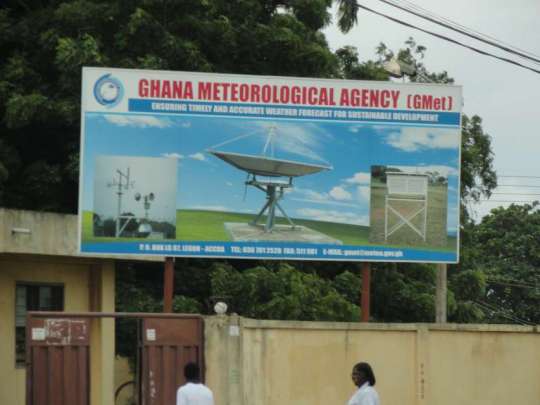The Ghana Meteorological Agency (GMet) is embroiled in a deepening labor dispute, with its workforce expressing profound frustration over management’s persistent failure to implement agreed-upon conditions of service. These workers, responsible for providing crucial weather information, often operate under challenging and hazardous conditions, including exposure to severe weather and wildlife risks in remote locations. Despite these demanding circumstances, they maintain their commitment to delivering accurate meteorological data to the public. However, their dedication has been met with what they perceive as indifference and disregard from GMet’s leadership, who have repeatedly stalled on fulfilling promises to improve their working conditions and overall welfare. This perceived betrayal has fueled mounting resentment among the staff, who now threaten to escalate their actions if their concerns continue to be ignored.
At the heart of the dispute lies a long-standing agreement between GMet management and its employees, outlining improvements to their working conditions and benefits. The workers contend that despite years of patient waiting and repeated attempts at dialogue, management has failed to implement these agreed-upon provisions. This perceived breach of trust has eroded morale within the agency and created an atmosphere of distrust. The workers, feeling undervalued and neglected, have expressed their dismay at the apparent lack of concern for their well-being, especially given the inherent risks they face in their line of duty. This sentiment of frustration is amplified by the perception that their contributions to public safety and national development are not being adequately recognized or compensated.
Pastin Ahenkan Egyiri, Divisional Chairman of the Public Services Workers’ Union (PSWU), speaking on behalf of the GMet staff, highlighted the difficult and often dangerous conditions under which they operate. He emphasized the risks they face, including exposure to inclement weather and potential encounters with dangerous wildlife while carrying out their duties in remote areas. Despite these challenges, he reiterated the workers’ unwavering dedication to providing accurate and timely meteorological services to the public. However, he also made it clear that their patience has reached its limit and that they are prepared to take decisive action to compel management to address their concerns. This strong stance underscores the depth of their frustration and their determination to secure the improvements they believe they have been unjustly denied.
The simmering discontent within GMet reflects a broader pattern of labor unrest within Ghana’s public sector. Numerous government agencies have faced similar challenges, with workers expressing growing disillusionment over the government’s perceived failure to honor its commitments to improve working conditions and address long-standing grievances. This widespread discontent highlights systemic issues within the public sector, including inadequate funding, bureaucratic inefficiencies, and a perceived lack of responsiveness from government officials. The GMet situation serves as a microcosm of these broader challenges, underscoring the need for comprehensive reforms to address the root causes of worker frustration and ensure the effective delivery of essential public services.
The recent strike by the Ghana Registered Nurses and Midwives Association (GRNMA) further illustrates the escalating tension between public sector workers and the government. The GRNMA’s industrial action, prompted by similar grievances of unpaid allowances and delayed implementation of agreements, disrupted healthcare services across the country. While the strike has since been suspended following interventions, it served as a stark reminder of the potential consequences of unresolved labor disputes within essential services. The GRNMA’s actions underscored the growing willingness of public sector workers to take drastic measures to secure their rights and demand accountability from the government.
The GMet workers’ predicament is exacerbated by the onset of the rainy season, which intensifies the risks they face while performing their duties. The combination of challenging weather conditions and the ongoing dispute with management has created a volatile situation, with the potential for further escalation. The workers perceive the silence from management as not only disrespectful but also a direct threat to their safety and well-being. This perceived disregard for their concerns has fueled their determination to pursue their demands, even if it means resorting to more disruptive measures. As the rainy season progresses, the tension within GMet is likely to increase, posing a significant challenge to both the agency’s operations and the government’s ability to maintain stability within the public sector. The unresolved issues at GMet, coupled with the broader unrest within the public sector, underscore the urgent need for the government to engage in meaningful dialogue with its workforce and address the underlying causes of this growing discontent. Failure to do so risks further disruptions to essential services and could potentially destabilize the broader public sector landscape.


